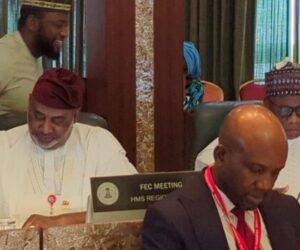1
There is hardly any doubt that, since its enactment in 2010, the Nigerian Oil and Gas Industry Content Development (NOGICD) Act has reshaped Nigeria’s oil and gas sector.
With a clear mandate to prioritise Nigerian participation at every stage of the industry value chain, the Act establishes a legal and institutional framework that compels operators, contractors, and service providers to maximise Nigerian content in manpower, materials, and services—setting Nigeria on a path towards economic diversification, capacity building, and national empowerment.
Before the Act’s inception, local content in the Nigerian oil and gas sector was minimal—estimated to be as low as 5%—and characterised by a heavy reliance on foreign companies, expatriate workers, and imported equipment.
Recognising the urgent need to change this paradigm, the Federal Government signed the NOGICD Act into law on 22 April 2010, under the administration of President Goodluck Jonathan.
The Act defines Nigerian content as “the quantum of composite value added to or created in the Nigerian economy by a systematic development of capacity and capabilities through deliberate utilisation of Nigerian human, material resources, and services”.
Its aim is to substantially increase indigenous participation—not only promoting economic growth but also fostering technology transfer, job creation, and the sustainable development of local enterprises.
Literature obtained by our correspondent revealed that a key element of the Act is the establishment of the Nigerian Content Development and Monitoring Board (NCDMB), empowered to implement, supervise, and ensure compliance across all oil and gas agreements, projects, and operations.
Findings also revealed that operators in the industry are mandated to submit detailed Nigerian Content Plans (NCPs) for approval before the commencement of any project. These plans must outline how they intend to meet local content targets in procurement, employment, technology transfer, and capacity building.
The NCDMB rigorously monitors performance, requiring annual Nigerian Content Performance Reports that specify the levels of Nigerian participation by expenditure category, workforce composition, and procurement of locally manufactured materials. Non-compliance can attract sanctions, underlining the seriousness of the government’s commitment.
Findings also show that the impact has been substantial, with Nigerian content surging to over 54% in many facets of the oil and gas industry since 2010—a more than tenfold increase from pre-Act levels.
Local companies have evolved from marginal subcontractors to key contract holders and project leaders.
Indigenous engineering firms, fabrication yards, and service providers now undertake complex oilfield services and infrastructure development.
“Where once we depended almost entirely on foreign expertise, today we have Nigerian companies leading major projects and providing sophisticated services,” said a senior official at the NCDMB.
“This is a testament to the capacity we have built through sustained support and regulation.”
Importantly, the Act has catalysed the development of Nigerian human capital.
The mandated limitation on expatriate personnel in projects, along with requirements for succession planning, ensures that Nigerians are prioritised in recruitment and trained for progressively senior roles, thereby strengthening workforce nationalisation.
Beyond employment and procurement, the NOGICD Act fosters technology transfer. Operators are required to invest in local workforce skills, infrastructure development, and research initiatives. This has encouraged global and multinational companies to partner with Nigerian firms in knowledge-sharing ventures, enabling the country to build a self-sufficient industrial ecosystem.
A notable example of local capacity development facilitated by the Act is the establishment of indigenous fabrication yards and training centres, which has reduced reliance on imports and foreign services.
Obinna Ezeobi, a member of the management team at the NCDMB, stated that the Board routinely organises workshops, seminars, and training programmes to drive continuous capacity enhancement among local operators and contractors.
According to Ezeobi, the Act’s economic ripple effects extend beyond oil and gas sites. He stressed that by nurturing homegrown companies and creating thousands of direct and indirect jobs, the Act supports Nigeria’s broader developmental goals—alleviating poverty and stimulating local economies.
He pointed out that projects such as the NCDMB Conference Hotel and the Oloibiri Museum, which showcases Nigeria’s oil heritage, highlight how Nigerian content development also contributes to national infrastructure and heritage preservation, reinforcing the cultural and economic significance of the oil sector’s indigenisation.
He further highlighted that financial incentives embedded in the Act, such as the Nigerian Content Development Fund, provide critical funding and capacity-building support for Nigerian enterprises striving to meet international standards—enhancing competitiveness and sustainability.
Olu Verheijen, Special Adviser to the President on Energy, emphasised that recent presidential directives have reinforced, not weakened, the objectives of the NOGICD Act:
“What the directives have done is to clarify the intent of the Nigerian Content Act—to ensure that we truly support and focus on building genuine capacity. The policy shift prioritises companies making real investments in infrastructure, human capital, and the employment of Nigerians.”
A senior official from the Nigerian Content Development and Monitoring Board (NCDMB) highlighted the growth in local participation and job creation:
“NCDMB has, since 2010, worked collaboratively with stakeholders to grow local content in the oil and gas sector to 56 percent as of February 2025.
“Over 50,000 jobs have been created, alongside the delivery of 13,000 training man-hours through capacity development programmes. Major projects like the $5 billion Nigeria LNG Train 7 are now being executed with 50 percent local content, employing over 8,300 Nigerians.”
At the recently held 2025 Nigeria Oil and Gas Conference, industry leaders praised NCDMB’s support for indigenous infrastructure development, citing projects such as the Otakikpo Crude Export Terminal as a milestone for Nigerian-owned facilities: “This terminal, with a $400 million initial investment, represents a breakthrough in boosting indigenous crude export capacity, with reduced costs and enhanced economic viability of marginal fields.”
Bukola Adubi, Chief Executive Officer of MicCom Cables and Wires Limited and an industry analyst, noted the evolving nature of the Act: “The NOGICD Act is a living policy framework that adapts as the sector grows, ensuring Nigerian companies are not only participants but innovators and leaders in the global oil and gas landscape.”
Despite its successes, the NOGICD Act faces implementation challenges, including occasional resistance from foreign operators, capacity gaps among Nigerian firms, and evolving market dynamics. However, the NCDMB continually updates guidelines, audits compliance, and expands support mechanisms to address these challenges.
The 2025 Nigeria Oil and Gas Conference reaffirmed the government’s commitment to strengthening Nigerian content policies. New initiatives focus on enhancing indigenous technological innovation, fostering digital transformation, and integrating sustainability into oil and gas operations—all aimed at solidifying Nigeria’s leadership in Africa’s energy sector while ensuring maximum local benefit.
As Nigeria navigates the challenges of energy transition and global competitiveness, the NOGICD Act remains a cornerstone for inclusive growth and national prosperity.
The Nigerian Oil and Gas Industry Content Development Act has proven to be a revolutionary policy tool, transforming Nigeria’s oil and gas sector from foreign dependence to indigenous empowerment. Through a robust legal framework, committed institutions, and measurable targets, it has dramatically increased Nigerian participation—empowering local companies, the workforce, and innovation to take charge of the country’s vast oil and gas resources.








